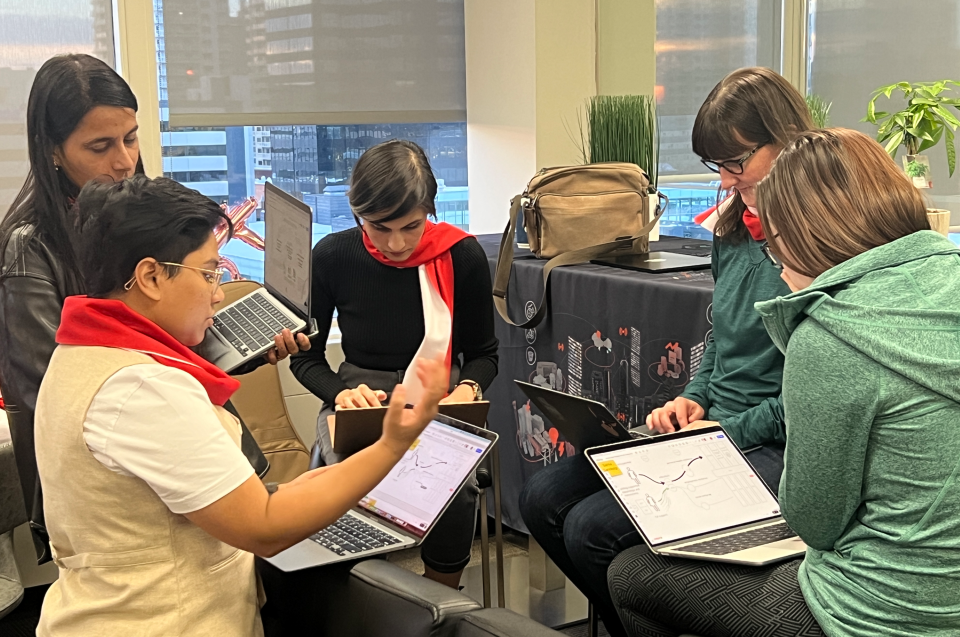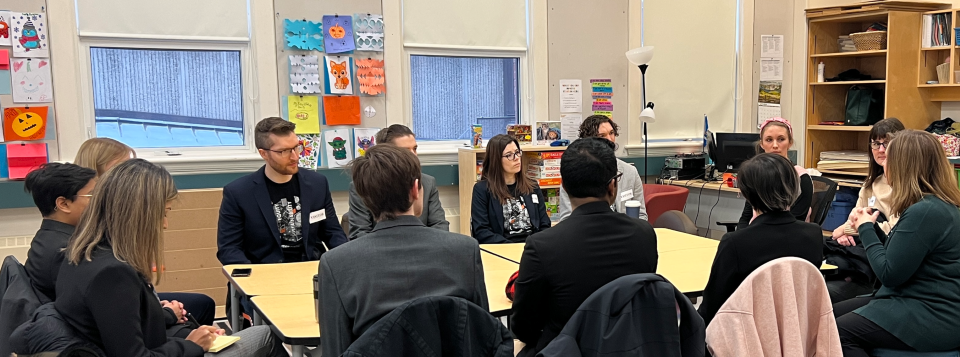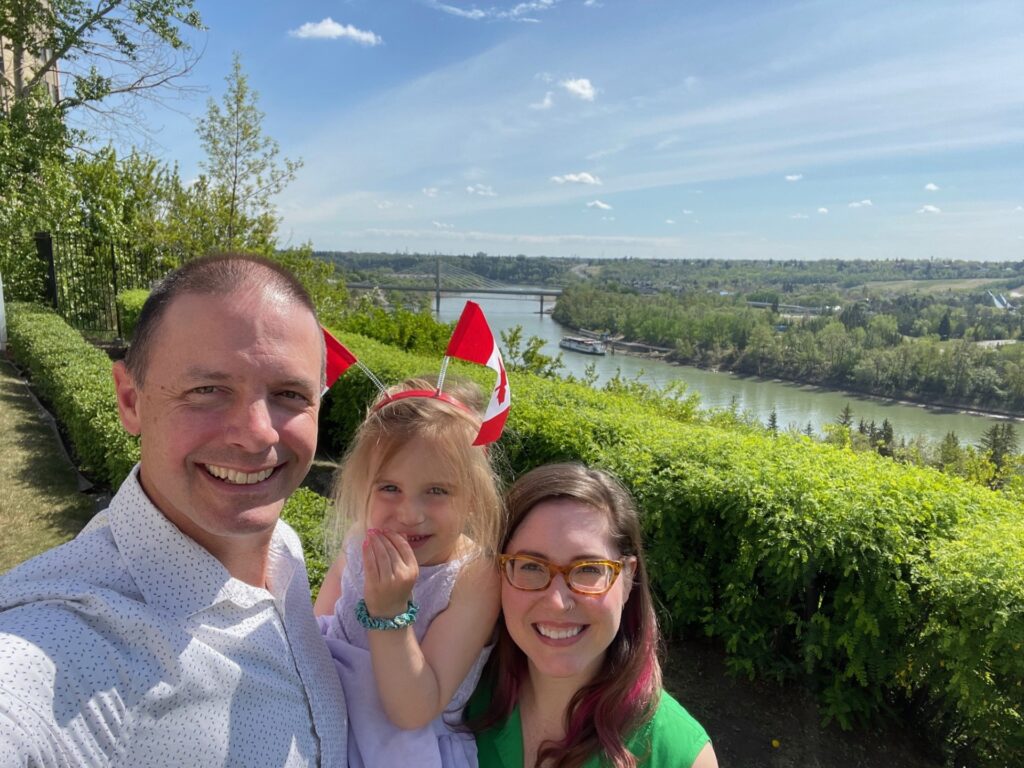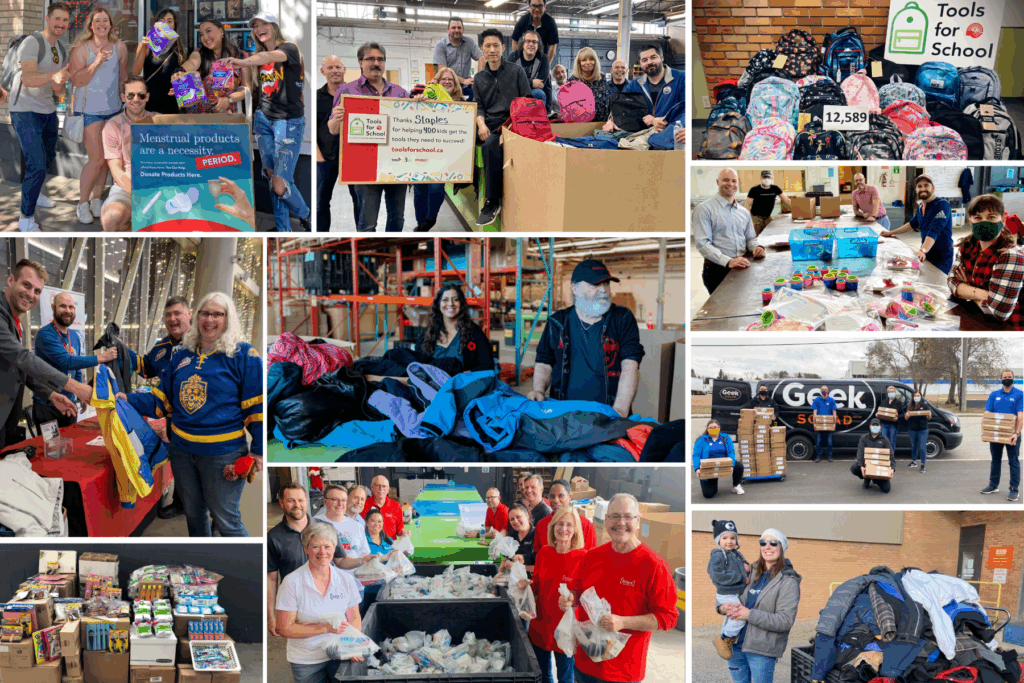February 14, 2023

Thanks to synthetic modelling, we can better understand how wraparound supports in schools
can help students, families, and the Edmonton community thrive in 2044.
An Edmonton tech company is shedding light on the potential long-term, generational impacts of United Way’s in-school supports, thanks to their innovative synthetic modelling that can help us understand what a community could look like decades into the future.
RUNWITHIT (RWI) Synthetics’ team of experts from around the world convened at their downtown Edmonton headquarters last month for a hackathon aimed at modelling what effect All in for Youth (AIFY) could have in the Edmonton region by the year 2044.
RWI Synthetics uses open, publicly available data to create models that generate Synthetic Data —information that’s artificially generated rather than produced by real-world events, including data that may be missing or not capturable, completing key datasets. Multiple data sources can also be combined to create a richer database than those built from national surveys or census alone. The data is inputted into computer models that interconnect and interact, building a universe of people, environments, and conditions to generate synthetic realities.
For Myrna Bittner, RWI Synthetics CEO and co-founder, the key aspect of this work is the human element and examining the data through a lens of social equity and inclusion.
“You can’t look at people without seeing everybody. When we started looking at synthetic populations even before we were asked, we were so passionate about looking at marginalized, invisible populations that weren’t in datasets or census. They’re there, but they are invisible,” Myrna explains.

The RWI Synthetics team takes a tour of Norwood School, which provides All in for Youth wraparound supports to students in Kindergarten to Grade 12.
“Bringing those (people) into sight and into consideration has now become so compelling for us. It’s not only a value proposition… but because it is something that has been missing. To build true sustainability in the planet, and true resilience for the scenarios that are coming and that are happening today — we can’t do that without equity, and we can’t leave people behind.”
Disjointed or missing data can be a barrier for programs like All in for Youth, especially since the collaboration is relatively new. Since AIFY has only been around since 2015, we aren’t able to see any generational impacts of the programs’ wraparound supports — mentoring, nutrition, success coaching, before and after-school programming, family support, and mental health supports — yet.
But the modelling by RWI Synthetics could be key to seeing those impacts now, making the initiative even more responsive and agile to meet the needs of students and their families.
“Our analysis, from a data perspective, is always looking backwards. This is the first time we’ve used data to peer forward and make a projection,” explains Mark Diner, Vice President, Digital and Data for United Way of the Alberta Capital Region.
“(Using synthetic data) enables us to look at impact of the population before we’ve even run the programming and make a pretty good projection as to what the result would be. It accelerates our ability to understand impact in months instead of years.”
As a former elementary educator, Myrna was excited about the opportunity to partner with United Way on a project that examined the impact of education on youth today and into the future.
“We spend so much of our time modelling 2040, 2050 … This is the world that we’re building for [youth]. To be asked that question about youth, is like ‘finally!’,” she shares.
“We want people to see the opportunities that they have now… to change their life trajectory: the climate they’re going to be living in, the opportunities that they have, the security that they feel.”
Stay tuned to discover the team’s results for Edmonton in 2044 — and what ripple effects youth supports like AIFY will have on multiple generations.
Does your workplace or organization have a unique skillset that could be used to help United Way’s work identifying and implementing the most impactful solutions for addressing complex issues in our community? Connect with our team to learn how you can help.

Jason Schauenberg, a proud ally and supporter of Women United, is helping pave the way for a more equitable future for his daughters.

We're announcing some changes at United Way of the Alberta Capital Region. Learn how your impact will continue to make a difference as we evolve to create long-lasting change in our community.